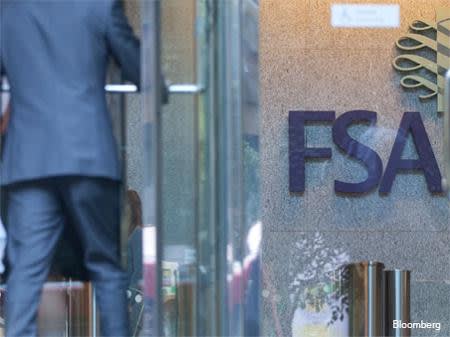People often assume 'dodgy' investments are only bought by idiots, but an Investors Chronicle investigation reveals that even savvy investors are falling prey to them. This is down to a surge in cleverly marketed 'too good to be true' investments that play on your hunger for profit, but have the potential to gobble up your life savings.
As investors desperately and often unsuccessfully scrambled for decent returns during 2008's financial crisis, a flurry of opportunistic investment companies emerged. These offered 'alternative' unregulated investments with magnificent 'target' returns that could form all, or part of a self-invested personal pension (Sipp).
But these are not viable for the vast majority of people with a Sipp. A Financial Services Authority (FSA) investigation revealed that 75 per cent of unregulated investments are actually detrimental to the portfolios of private investors - meaning the odds are clearly stacked against anyone trying to make money from unregulated investments.
Not all of them are scams, though - some offer perfectly legitimate funding opportunities. But the vast majority are highly unsuitable for private investors because they are highly risky and have no guarantee of rewards. The problem is that these are too often making their way into savers' Sipp portfolios, regardless of their suitability.
Most investors are wise to cold calling, but others might not be so suspicious if a financial adviser told them an unregulated investment was a good idea. The harsh reality is that a rising number of greedy advisers are ready and willing to sell you these unsuitable investments. And their motive? A fat commission.
Most people sold dodgy investments are too embarrassed to talk about it, but The Financial Ombudsman is currently dealing with around 200 complaints about regulated advice investors have received relating to investing - often very large sums of money - in unregulated investments.
A spokesperson for the Ombudsman told Investors Chronicle: "Often the complaints we see centre around the advice the consumer received to invest, and whether this was suitable for their circumstances, given the level of risk associated with these products."
But sadly this does not paint the entire picture, as most of the bad advice comes from unregulated advisers. Exempt from the rigorous checks and tests regulated advisers have to pass, much unregulated advice is "smoke and mirrors", concealing morally questionable, underhand business, according to Martin Tilley, director of technical sales at Dentons.
"These advisers can't be held to account if they say they're not giving advice. They'll only admit to 'introducing people', but this is just a cover-up - they're still facilitating appalling transactions and they'll be raking in commission from it," he said.
What are unregulated investments?
Regulation is a safety net most investors take for granted. To gain regulated status, investment managers have to jump through a series of hoops - an arduous process which can prove very expensive, but that ultimately protects investors through compensation, therefore making their investments safer. But some don't bother with this - and these are referred to as unregulated investments.
There are two types. The first are unregulated collective investment schemes (UCIS). These range from investments in fine wines and classic cars to crops and carbon credits. They are not supposed to be marketed to the general public and the FSA is particularly concerned that there are high levels of unsuitable advice from IFAs when recommending UCIS.
The second is fractional ownership. Here, the overall asset is split up into individual units, plots or investments and then sold off individually. Such fractional ownership investments are often marketed more aggressively than UCIS investments, and are equally high risk. Examples we came across during this investigation include a car park in Dubai, storage units in the UK and a cemetery in the West Midlands.
Phillip Bray, marketing manager at Investment Sense, told the Investors Chronicle that he'd been contacted by a man who had been convinced by a financial adviser to invest his entire pension fund of £47,000 into a hotel room scheme offering returns of £24,000 a year.
And Investors Chronicle is currently investigating a case in which a financially challenged 55-year-old had his entire pension locked into an unregulated 15-year bamboo investment with Plantation Capital. He claims his Sipp provider and an unregulated tax planner helped him sign away his life savings while taking thousands in commission from him. Plantation Capital describes the situation as "crazy", but says it was totally unaware of the gentleman's financial situation because its 'due diligence' checks are designed purely to check that the investment money has not been sourced illicitly. Following our investigation, the company has agreed to return the investment in full, including the commission.
Should I steer clear of unregulated investments?
Not necessarily. There is a place in the market for them, albeit very small. The FSA currently allows advisers to sell unregulated investments to high-net-worth investors, sophisticated investors, self-certified sophisticated investors and existing investors in UCIS, but unfortunately the definition of these labels is rather cloudy. There are some exciting-looking opportunities, but, in short, if you haven't got at least £100,000 to invest, you don't have a high risk appetite, or you don't understand the investment you should avoid them.
But if you are eligible and do want to invest, Mr Tilley says esoteric Sipps can offer you "fantastic" opportunities that you wouldn't have access to in a low-cost Sipp. He reassures that not all unregulated investments are dodgy or out of place in sophisticated investors' portfolios.
He cites Mayfair Capital in particular as an investment offering 'good' unregulated investment funds - this is a London-based commercial property company which has been running for many years and offers seemingly healthy returns, with reasonably priced TERs ranging from 0.72 to 1.64 per cent. Compare this with the shocking 10 per cent commission companies such as Plantation Capital scrape from their investors' funds, and it looks like a bargain.
But beware high fees, as charges are very often hidden - and grossly inflated. Peter Adcock, founder of Adcock Financial, warns that anything above 2 per cent looks "very expensive", but the full story could be concealed in the depths of painful amounts of small print or, in the worst cases, not at all.
These are investment companies that make their own rules. If they suddenly fancy adding a 10 per cent "commission fee" to cover unforeseen costs, there's no one to slap their wrists. And if in the worst-case scenario the company collapses – or turns out to be fake – there will be no one there to offer you compensation and you will lose everything.
Another thing you need to watch out for is the asset class you're investing in. Be very wary of tangible, moveable assets as investing in these could slap you with a 55 per cent tax penalty, according to Greg Kingston at Suffolk Life.
"Many of these investment companies are slippery operators who prey on the most basic of human natures - greed. Don't be fooled by glossy brochures and 'too good to be true' returns. If they want to lock your money away for more than two years, the investment isn't liquid enough to be suitable for a Sipp. Avoid."
Mr Adcock believes most unregulated investments are "cons". "Never mind my client's money, (with very rare exception) I wouldn't even risk my own money in unregulated investments. I'd look at Aim portfolios if I wanted something with a higher degree of risk attached to it, but apart from that I wouldn't touch it with a bargepole," he says.
Stay safe: be aware of the perils of unregulated investments • Money lost through unregulated investments is not covered by the Financial Services Compensation Scheme so if something goes wrong with the investment, you could lose everything. • Unregulated investments do not have to disclose their fees to you, meaning they can effectively take anything they like from your investment. • According to FSA guidelines it is now illegal to be sold an unregulated investment unless you are a sophisticated, high-net-worth investor. • Very high quoted returns are an indication of risk and should prompt a sceptical view of an investment. • If investing in unregulated investments, you should confirm whether the rate of return is 'actual' or 'targeted'. • If you've been badly advised or mis-sold unsuitable investments don't be too embarrassed to tell someone. The FSA, the Financial Ombudsman or a lawyer may be able to help you recover some or all of your money. |











